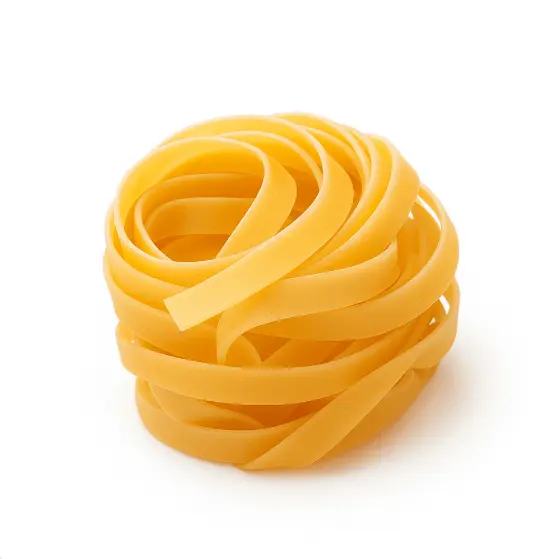 Imperfetto
Imperfetto
Lesson twenty-eight


Lesson twenty-seven
Passato prossimo is one of the most commonly used past tenses in Italian. It is primarily used to describe actions that have been completed in the past. Let's break down its use and formation, and compare it with another important past tense: the imperfetto.
In Italian, there are several past tenses, but the two most commonly used are the passato prossimo and the imperfetto.
Passato prossimo is used to describe actions that happened once or just a few times and where we know the exact moment they occurred or how long they lasted.
Imperfetto is used for actions that occurred regularly or habitually in the past, or when we don't know when the action started or ended.
Examples:
Passato prossimo:
Ieri ho mangiato un gelato.
Yesterday, I ate an ice cream.
This happened just once, and we know when it happened.
Imperfetto:
Quando vivevo a Roma, andavo spesso al ristorante.
When I lived in Rome, I used to go to the restaurant often.
The action occurred regularly, and we don’t know when it started or ended.
The difference between passato prossimo and imperfetto can be subtle, and it’s common for learners to mix them up. We will discuss the imperfetto in more detail later. For now, let's focus on the passato prossimo.
The passato prossimo is formed by combining the present tense of either the verb avere (to have) or essere (to be) with the past participle of the verb.
Avere (to have) is used with most verbs.
Mangiare ho mangiato (I ate)
Dormire ho dormito (I slept)
Leggere ho letto (I read)
Essere (to be) is used with certain verbs, usually indicating motion or change of state. These verbs require the past participle to agree in gender and number with the subject (e.g., sono andato/a).
To form the past participle (participio passato), you must modify the ending of the verb based on its conjugation group.
-are verbs change -are into -ato:
Mangiare
to eat
mangiato (eaten)
Amare
to love
amato (loved)
Sognare
to dream
sognato (dreamed)
Parlare
to speak
parlato (spoken)
Examples:
Ho mangiato molto bene ieri sera.
I ate very well last night.
Stanotte ho sognato di essere in vacanza.
Last night, I dreamt of being on vacation.
Oggi ho parlato con Lucia.
Today, I talked with Lucia.
Ho amato solo una persona.
I have loved only one person.
-ere verbs change -ere into -uto:
Piovere
to rain
piovuto (rained)
Cadere
to fall
caduto (fallen)
Vendere
to sell
venduto (sold)
Sapere
to know
saputo (known)
Examples:
Ieri ha piovuto tutto il giorno.
It rained all day yesterday.
Sono caduto dalle scale.
I fell down the stairs.
Ho venduto il mio computer.
I sold my computer.
Ho saputo che Carlo ha perso il lavoro.
I found out that Carlo lost his job.
-ire verbs change -ire into -ito:
Sentire
to hear
sentito (heard)
Dormire
to sleep
dormito (slept)
Examples:
Ho dormito tutta la mattina.
I slept all morning.
Non ho sentito cosa hai detto.
I didn’t hear what you said.
Verbs with the -isc suffix do not carry the -isc in the passato prossimo. They follow the regular -ire pattern:
Finire
to finish
finito (finished)
Spedire
to send
spedito (sent)
Examples:
Ho finito i compiti.
I finished the homework.
Lui ha spedito la lettera.
He sent the letter.
Verbs ending in -ure change -ure into -otto:
Tradurre
to translate
tradotto (translated)
Ridurre
to reduce
ridotto (reduced)
Example:
Ho tradotto questa frase in italiano.
I translated this sentence into Italian.
Verbs that end in -cere add an -i before -uto:
Piacere
to like
piaciuto (liked)
Conoscere
to meet
conosciuto (met)
Examples:
Questo film mi è piaciuto.
I liked this movie.
Ho conosciuto Alberto due anni fa.
I met Alberto two years ago.
To form a negative sentence in the passato prossimo, simply add non before the verb, just as you would in the present tense.
Examples:
Non ho visto questo film.
I haven’t seen this movie.
Oggi non ho studiato.
I haven’t studied today.
Non ho capito cosa hai detto.
I haven’t understood what you said.
Non ho ancora lavato i piatti.
I haven’t washed the dishes yet.
In Italian, the passato prossimo is typically formed using the present tense of the auxiliary verb avere (to have), but in certain cases, essere (to be) is used instead. Below is an explanation of when to use each auxiliary verb and how they affect the past participle.
Certain types of verbs, particularly those that express movement or a change of state, require essere rather than avere in the passato prossimo. These verbs include:
Verbs of Movement:
Andare
to go
Ieri sono andata a scuola.
Yesterday, I went to school. (female speaker)
Tornare
to return
Mio fratello è tornato a casa alle dieci.
My brother returned home at ten. (male subject)
Partire
to depart
Il treno è partito dalla stazione.
The train departed from the station.
Arrivare
to arrive
Mio padre è arrivato a casa.
My father arrived home.
Venire
to come
Anche Anna è venuta al cinema.
Anna also came to the cinema.
Entrare
to enter
Sono entrata nella casa.
I entered the house. (female subject)
Uscire
to go out
Ieri sono uscita coi miei amici.
Yesterday, I went out with my friends. (female subject)
Reflexive Verbs:
Reflexive verbs always use essere as the auxiliary verb in the passato prossimo.
Alzarsi
to wake up
Stamattina mi sono alzato presto.
This morning, I woke up early. (male speaker)
Lavarsi
to wash oneself
Mi sono lavato i denti.
I brushed my teeth. (male speaker)
Farsi
to shave, to do oneself
Mi sono fatto la barba.
I shaved. (male subject)
Verbs that Express a Change of State:
Diventare
to become
Agata è diventata grande.
Agata has grown up.
Crescere
to grow
La pianta è cresciuta molto.
The plant has grown a lot.
Nascere
to be born
Sono nata a Roma.
I was born in Rome.
Ingrassare
to gain weight
Sono ingrassata molto quest'anno.
I have gained a lot of weight this year. (female subject)
Dimagrire
to lose weight
Sono dimagrita perché vado in palestra.
I have lost weight because I go to the gym. (female subject)
When essere is used as the auxiliary verb, the past participle must agree in gender and number with the subject of the sentence:
Il ragazzo è andato in città.
The boy went to the city.
La ragazza è andata in città.
The girl went to the city.
I ragazzi sono andati in città.
The boys went to the city.
Le ragazze sono finite in città.
The girls ended up in the city.
Example with the speaker's gender:
Ieri sono andata dal dottore.
I went to the doctor yesterday. (female speaker)
Ieri sono andato dal dottore.
I went to the doctor yesterday. (male speaker)
When object pronouns such as mi, ti, lo, la are used with avere, the past participle changes to match the gender and number of the object pronoun.
Example with a feminine object pronoun:
Hai visto Anna? No, non l'ho vista.
Have you seen Anna? No, I haven't seen her.
Example with a masculine object pronoun:
Hai visto Gabriele? No, non l'ho visto.
Have you seen Gabriele? No, I haven't seen him.
Plural examples:
Non le ho viste.
I haven't seen them (feminine).
Non gli ho visti.
I haven't seen them (masculine).
Notice that the object pronoun comes before the verb avere.
The passato prossimo is also used when describing multiple actions that occurred one after the other in the past:
Stamattina mi sono alzata, mi sono lavata i denti e sono andata al lavoro.
This morning, I got up, brushed my teeth, and went to work. (female speaker)
Ieri sono andata al bar e ho bevuto un bicchiere di vino.
Yesterday, I went to the bar and drank a glass of wine.
L'altro giorno sono uscita, sono andata a correre e poi ho fatto la doccia.
The other day, I went out, went for a run, and then took a shower.
The verb essere (to be) has an irregular past participle: stato. It uses essere as the auxiliary verb and can describe both physical and states of being.
Examples:
Marco è stato al mare.
Marco went to the sea.
La ragazza è stata al mare.
The girl went to the sea.
Sono stata in biblioteca a studiare.
I went to the library to study. (female subject)
Sono stata in ufficio tutta la mattina.
I was in the office all morning. (female subject)
Sono stata ad una riunione importante.
I went to an important meeting. (female subject)
The verb avere (to have) also has an irregular past participle: avuto.
Examples:
Ho avuto un incidente ieri.
I had an accident yesterday.
Non ho avuto tempo per scriverti.
I didn’t have time to write to you.
Lei ha avuto due figli.
She had two children.
As you've seen, some Italian verbs don't follow the regular patterns when forming the passato prossimo. These are considered irregular verbs, and you have to memorize their past participles. Below is a list of some common irregular verbs and their past participles:
Andare
to go
andato
Ieri sono andata al cinema.
Yesterday, I went to the cinema. (female subject)
Dire
to say
detto
Ho detto a Elena la verità.
I told Elena the truth.
Fare
to do, to make
fatto
Cosa hai fatto ieri?
What did you do yesterday?
Aprire
to open
aperto
Ho aperto la finestra.
I opened the window.
Chiudere
to close
chiuso
Ho chiuso la porta.
I closed the door.
Decidere
to decide
deciso
Cosa hai deciso di fare?
What have you decided to do?
Vedere
to see
visto
Ieri ho visto un film.
Yesterday, I watched a movie.
Piacere
to like
piaciuto
Questo film non mi è piaciuto.
I didn’t like this book.
Leggere
to read
letto
Stamattina ho letto il giornale.
This morning, I read the newspaper.
Scrivere
to write
scritto
Ho scritto alla mia amica.
I wrote to my friend.
Mettere
to put
messo
Ho messo il libro sullo scaffale.
I put the book on the shelf.
Arrivare
to arrive
arrivato
Lui è arrivato alle sette.
He arrived at seven.
Entrare
to enter
entrato
Una mosca è entrata dalla finestra.
A fly entered through the window.
Uscire
to go out
uscito
Sono uscita a passeggiare.
I went out for a walk. (female subject)
Partire
to leave
partito
Il treno è già partito.
The train has already left.
Venire
to come
venuto
Lui non è venuto al concerto.
He didn’t come to the concert.
Tornare
to return
tornato
Mio padre è tornato a casa alle otto.
My father returned home at eight.
Prendere
to take
preso
Ho preso il treno per venire qui.
I took the train to come here.
Perdere
to lose
perso/perduto
Il Milan ha perso la partita.
Milan lost the match.
Promettere
to promise
promesso
Le ho promesso di accompagnarla.
I promised to accompany her.
Morire
to die
morto
Mio nonno è morto.
My grandfather passed away.
Nascere
to be born
nato
Ieri è nato il figlio di mia sorella.
Yesterday, my sister’s son was born.
Offrire
to offer
offerto
Lei mi ha offerto aiuto.
She offered me help.
Rispondere
to respond
risposto
Che cosa le hai risposto?
What did you answer her?
Sorprendere
to surprise
sorpreso
La sua reazione mi ha sorpreso.
Her reaction surprised me.
Spendere
to spend
speso
Ho speso molti soldi al ristorante.
I spent a lot of money at the restaurant.
Rompere
to break
rotto
Ho rotto un piatto.
I broke a plate.
Scegliere
to choose
scelto
Cosa hai scelto per cena?
What did you choose for dinner?
Vincere
to win
vinto
Ho vinto la gara.
I won the race.
Convincere
to convince
convinto
Ho convinto Lucia a venire.
I convinced Lucia to come.
Sembrare
to seem
sembiato
Oggi Valeria mi è sembrata strana.
Today, Valeria seemed strange to me.
Scadere
to expire
scaduto
Lo yogurt è scaduto.
The yogurt has expired.
Ingrassare
to gain weight
ingrassato
Antonio è ingrassato molto.
Antonio gained a lot of weight.
Dimagrire
to lose weight
dimagrito
Sono dimagrita di un chilo.
I lost a kilogram.
Stare
to stay, to be
stato/a
Sono stata male ieri.
I was sick yesterday. (female speaker)
Restare
to remain
restato
Sono restato a casa ieri sera.
I stayed home last night. (male speaker)
Rimanere
to remain
rimasto
Sono rimasta con lui tutto il pomeriggio.
I stayed with him the whole afternoon. (female subject)
Svenire
to faint
svenuto
Oggi sono svenuto.
I fainted today. (male subject)
Durare
to last
durato
Il film è durato due ore.
The movie lasted two hours.
Costare
to cost
costato
Questo vestito è costato molto.
This dress cost a lot.
Bastare
to be enough
bastato
Tutto quello che ho fatto non è bastato.
Everything I did wasn’t enough.
Cadere
to fall
caduto
Sono caduto dalle scale.
I fell down the stairs. (male subject)
Scomparire
to disappear
scomparso
Non trovo più Giacomo, è scomparso.
I can't find Giacomo anymore, he’s disappeared.
Sorgere
to rise
sorto
Il sole è sorto alle cinque.
The sun rose at five.
Tramontare
to set
tramontato
Il sole è già tramontato.
The sun has already set.
Friggere
to fry
fritto
Ho fritto dei calamari nell'olio.
I fried some squid in oil.
Coprire
to cover
coperto
Ho coperto l'auto con una coperta.
I covered the car with a blanket.
The passato prossimo is a key Italian past tense used to describe actions that are completed, happened at a specific time, or occurred a limited number of times. It is formed with the present tense of avere or essere plus the past participle. Most verbs use avere, while verbs of movement, change of state, and all reflexive verbs use essere, requiring the past participle to agree in gender and number with the subject. Regular verbs follow predictable patterns for forming past participles, while many common verbs are irregular and must be memorized. The passato prossimo can also be negated with non and is frequently used to narrate sequential past actions.
 Imperfetto
Imperfetto
Lesson twenty-eight
 Numbers
Numbers
Lesson twenty-nine
 Days of the week
Days of the week
Lesson thirty
 Months
Months
Lesson thirty-one
 Tell the time
Tell the time
Lesson thirty-two
 Dates
Dates
Lesson thirty-three